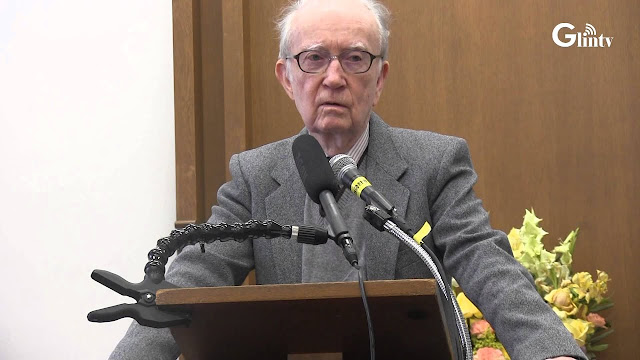Introduction - Christianity in Process: Joining God in World Solidarity
- Part 1a - Authority, Atonement, Abortion, and a Big Hug - Thomas Jay Oord
- Part 1b - The New Evangelicals - Tim Whitaker
- Part 2a - Theology in Process - Catherine Keller
- Part 2b - Panentheism, Pluralism, & Ecological Civilization - Andrew Schwartz
Part 3 - Divine Relationality - John Cobb
- Part 3a - Flowing with the Living God - Donna Bowman
- Part 3b - The Becoming of a Lutheran Queer Eco-Process Theologian from North Dakota - Jacob Erickson
- Part 4a - Aesthetic Religion - Jon Gil
- Part 4b - The Mighty Thor & God the Butcher - Ryan Does
Part 5 - The Kingdom of God - John Cobb
- Part 5a - Theology in an Event-Filled World - Joseph Bracken
- Part 5b - Process Theology Q&A - Thomas Jay Oord
Part 6 - Life After Death - John Cobb
- Part 6a - Everyday Mysticism & the Wisdom of Brother Lawrence with Carmen Butcher & Mike Morrel
- Part 6b - Confronting Whiteness - Ben Boswell
* * * * * * *
The Kingdom of God with John Cobb
July 6, 2022 - by John Cobb [1:23 hrs]
[podcast may have a slight initial delay]
Jesus’ world like ours was heading toward self-destruction. His “world” was Israel rather than the planet. Jesus taught that God called us to enter a different world. His name for it has been translated into English as “Kingdom of God.” In this world, people would, above all, love their enemies, especially those who persecuted them. Those Jews who followed him gave up revolting against Rome and tried loving individual Romans. But most Jews did not, and Rome eventually destroyed Jerusalem and dispersed the Jewish people. Still, those who were living by love of one another and others continued to experience a different reality in which they could participate even when Israel as a political entity was destroyed. Today, some of us call the alternative to the current world order, an ecological civilization.
* * * * * *
CLASS NOTES BY STEVE THOMASON
Christianity in Process Session 5
with John Cobb and Tripp Fuller
I am currently participating in the class Christianity in Process with John Cobb and Tripp Fuller. Here are my notes from their fifth session: The Kingdom of God. They discuss how Jesus’ proclamation of the basileia tou theou was not a top-down power structure, but a divine commonwealth that offered an alternative to Empire and what the implications are for us today. Enjoy!
COMPOSITE ILLUSTRATIONS 1-6


ILLUSTRATION 1

ILLUSTRATION 2

ILLUSTRATION 3

ILLUSTRATION 4

ILLUSTRATION 5

ILLUSTRATION 6


























